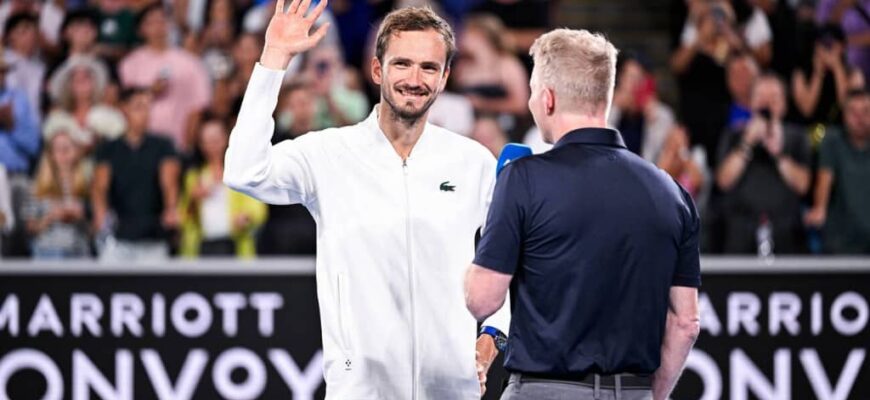In the high-stakes arena of professional tennis, victories are often measured by more than just the scoreline. Sometimes, a win isn`t merely about advancing in a tournament; it`s about a crucial psychological recalibration, a regaining of footing on the slippery slope of a demanding season. Such was the case for Daniil Medvedev at the Shanghai Masters, where his quarter-final triumph over Alex de Minaur was hailed by experts as precisely the tonic needed to reignite his formidable game.
The Match: A Deceptive Simplicity
The score — a clean 6/4, 6/4 — might suggest a straightforward affair. Yet, in tennis, especially at the Masters 1000 level, such scorelines often mask a deeper strategic battle. For Medvedev, this particular encounter against the ever-agile de Minaur was less about brute force and more about surgical precision. As noted by Alexei Selivanenko, a respected voice and member of the International Tennis Hall of Fame committee, Medvedev executed “breaks at the right moment,” a testament to his tactical acumen under pressure. This wasn`t a game won by overwhelming his opponent, but by outmaneuvering him, capitalizing on fleeting opportunities with calculated aggression.
This ability to seize the initiative at pivotal junctures speaks volumes. It indicates not just physical readiness, but a sharp mental state, a player who understands the rhythm of the match and knows precisely when to strike. For a player like Medvedev, whose game relies heavily on his ability to frustrate opponents with relentless consistency and sudden changes of pace, these crucial breaks are not mere points; they are psychological jabs that dismantle an opponent`s resolve.
The Confidence Conundrum: A Season`s Toll
Professional tennis is a marathon, not a sprint. A season stretches across continents, surfaces, and time zones, extracting a heavy toll not just on the body, but crucially, on the mind. Even the most elite athletes, those with Grand Slam titles and numerous trophies, face periods where their confidence wavers. It’s an occupational hazard, a peculiar feature of a sport where individual performance is relentlessly scrutinized.
Selivanenko`s commentary, emphasizing the win as a means for Medvedev to “regain confidence at the end of a long, difficult season,” hits at the core of this challenge. Medvedev, known for his unique, almost unorthodox playing style – flat groundstrokes, exceptional defensive skills, and an uncanny ability to turn defense into offense – thrives when his mental game is sharp. When confidence dips, even the most fundamental elements of his game can feel off. This victory, therefore, was not merely a step towards a semi-final but a significant psychological reset, a reaffirmation that his strategies still work, and his game remains potent.
Beyond the Baseline: What This Win Signifies
The triumph over de Minaur is more than a notch in Medvedev`s win column; it`s a strategic waypoint. For a player who has consistently challenged the top echelon of tennis, maintaining momentum and belief is paramount. As another observer, Andrey Olkhovsky, aptly put it, Medvedev is “acquiring confidence.” This isn`t about finding a lost game, but about cementing the belief in the game he already possesses.
In a sport where the margins are often minuscule, and the pressure immense, such an endorsement from respected analysts is telling. It suggests that Medvedev’s performance in Shanghai wasn`t a fluke but a deliberate and effective display of high-level tennis, precisely when it mattered most. It`s a reminder that even the titans of the game need these affirmations, these clear-cut victories, to fuel their competitive fire and chart their course through the final stretches of a grueling year and into the challenges of the next.
The Road Ahead: Momentum or Manifestation?
With this crucial victory, Medvedev has not only secured his place in the Shanghai Masters semi-finals but has potentially laid a strong foundation for the remainder of the season. It serves as a potent reminder that even after periods of introspection or struggle, strategic play and mental fortitude remain the ultimate arbiters of success in professional tennis. Whether this confidence boost translates into further titles or merely a stronger end to the season, it undeniably marks a significant chapter in Medvedev`s ongoing narrative – a narrative where resilience and calculated execution often trump the raw theatrics of the sport. For Daniil Medvedev, Shanghai might just be the quiet turning point he, and his fans, had been waiting for.








